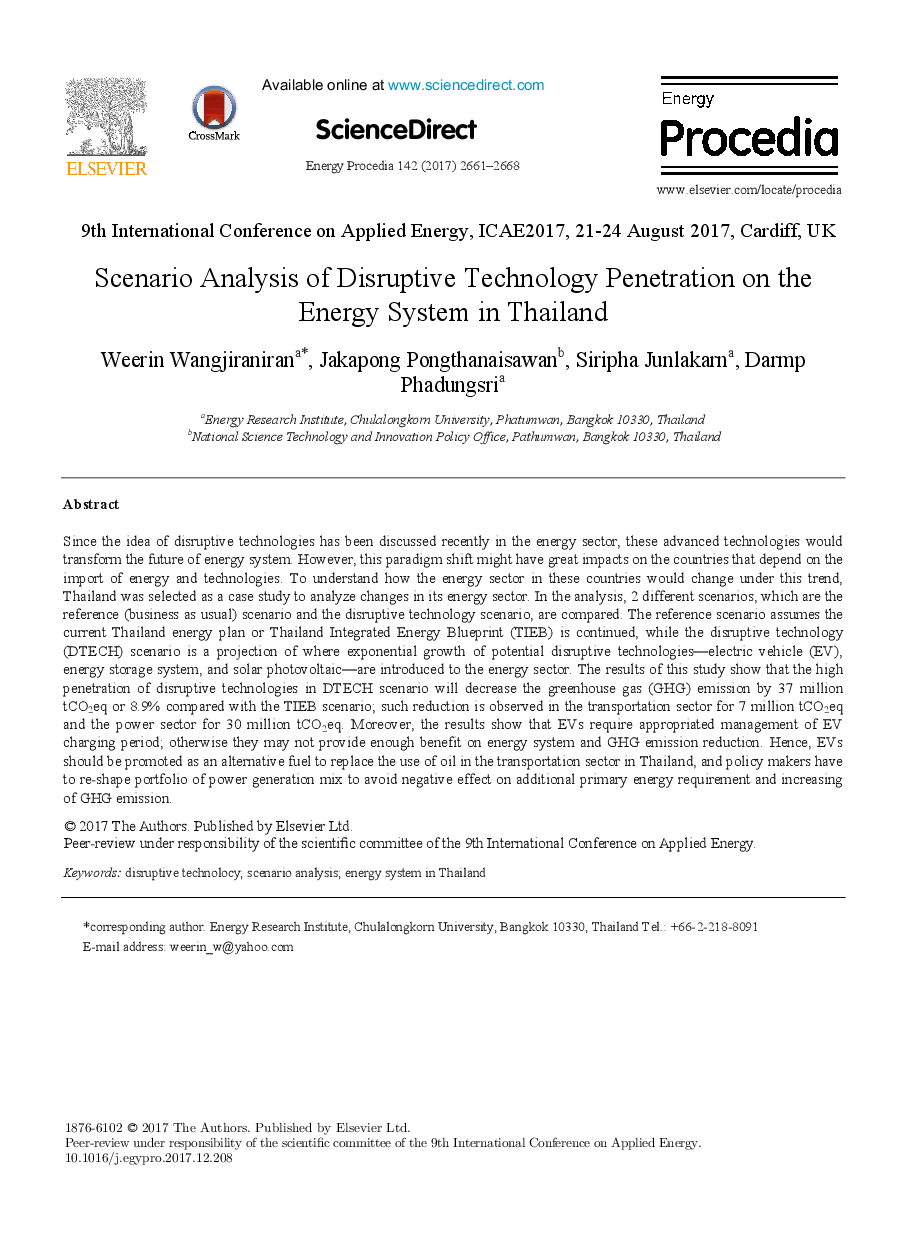ترجمه فارسی عنوان مقاله
تجزیه و تحلیل سناریو نفوذ فناوری متلاشی کننده در سیستم انرژی در تایلند
عنوان انگلیسی
Scenario Analysis of Disruptive Technology Penetration on the Energy System in Thailand
| کد مقاله | سال انتشار | تعداد صفحات مقاله انگلیسی |
|---|---|---|
| 113019 | 2017 | 8 صفحه PDF |
منبع

Publisher : Elsevier - Science Direct (الزویر - ساینس دایرکت)
Journal : Energy Procedia, Volume 142, December 2017, Pages 2661-2668
ترجمه کلمات کلیدی
تکنولوژی مخرب، تجزیه و تحلیل سناریو، سیستم انرژی در تایلند،
کلمات کلیدی انگلیسی
disruptive technolocy; scenario analysis; energy system in Thailand;

